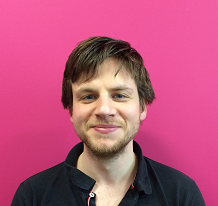Dr Tim Doheny-Adams
Associate Lecturer
Teaching and scholarship
![]()
Learning can be facilitated by employing techniques that promote active engagement and focus. Whether it be exploring principles of evolution by simulating population structure change with coloured blocks, or designing new rules for the board-game pandemic to better model known diseases, developing a sophisticated conceptual understanding of biological processes should be enjoyable and creative.
![]()
The world faces increasing challenges to food security and sustainable food production. Current high yielding farming techniques and expansion of farmland negatively impact our environment through deforestation, eutrophication, greenhouse gas emission, and loss of biodiversity. My lectures highlight key aspects of the food production chain which are currently unsustainable, and explore potential solutions for sustainable food production including integrated pest management systems and precision farming technology.
![]()
My tutorials encourage research on practical topics to acquire knowledge useful for achieving personal goals. Topics include examining how lifestyle affects learning and exploring the impact of diet on health and the environment. The direction the tutorials take is based on an initial session in which the topic is discussed in depth and subtopics voted on. Subsequent sessions take the form of short presentations, debates, literature reviews, informal chats and games.
![]()
Personal projects involve characterisation of genetically modified Arabidopsis plants with altered stomatal development. Stomata are key to regulating gas exchange in the plant and can affect drought tolerance, leaf conductance, nutrient uptake, temperature, carbon assimilation rate and more. Students are encouraged to develop their own experimental design and pursue research questions of their choosing. Techniques will vary, but are likely to include tissue preparation, PCR/sequencing, plant growth, use of LICOR instrumentation to measure leaf conductance, transpiration and carbon assimilation. The group project for industrial biotechnology centres around the development of a heroin biosensor using resources and techniques developed in Neil Bruce’s lab. Although some of the project design is prescribed, students are encouraged to develop innovative ideas for the final biosensor design. Laboratory techniques used include PCR, SDS-PAGE, enzyme activity assays, bacterial transformation, and protein purification.

